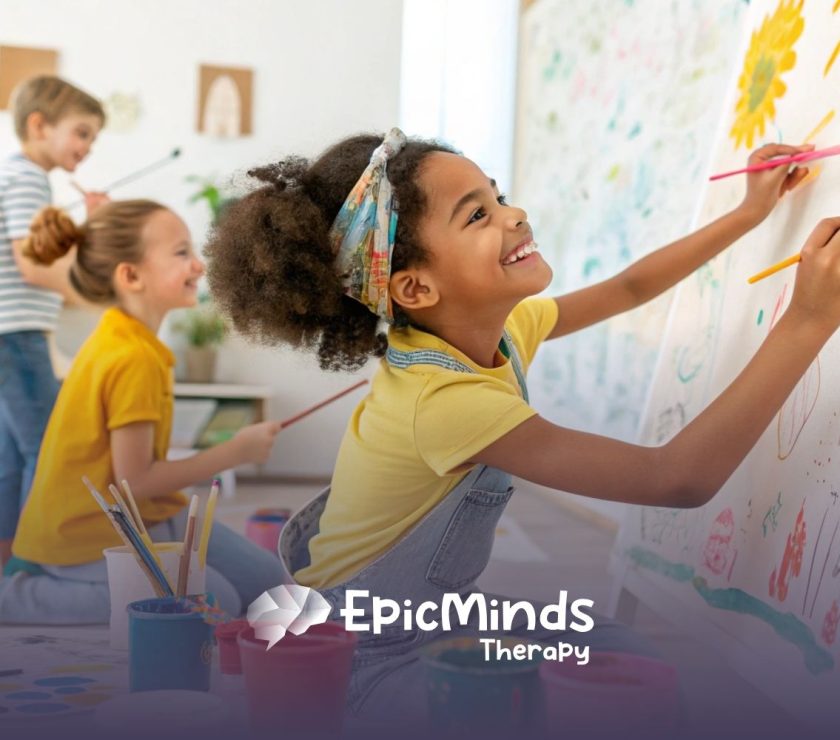If you’re a parent or caregiver of a child with autism, you know how important it is to support their focus, memory, and learning in ways that feel fun and natural. Brain exercises for autism are simple, hands-on activities that strengthen cognitive skills — helping children think, communicate, and problem-solve more effectively.
The great news is that you can easily do many of these exercises at home, in school, or as part of your child’s ABA therapy program.
Why Brain Exercises Are Helpful for Autism
Children on the autism spectrum often process information differently. Targeted cognitive exercises can help strengthen neural pathways in the brain, improving attention span, working memory, and emotional regulation.
Regularly practicing these activities supports:
- Improved focus and concentration
- Better problem-solving and decision-making
- Enhanced language and social skills
- Emotional awareness and regulation
- Greater confidence in learning and daily life
When combined with ABA therapy for autism, these activities can make a lasting impact on a child’s growth and independence.
Simple and Engaging Brain Exercises for Autism
Here are some of the best brain exercises for kids with autism — easy to set up, fun to play, and great for cognitive development.
1. Memory Matching Games
Use picture or number cards. Have your child flip them over two at a time to find matches. This boosts short-term memory and focus.
2. Sorting and Categorizing
Ask your child to group toys, buttons, or snacks by color, shape, or size. It helps with logical thinking and visual organization.
3. Story Sequencing
Cut out story cards or draw scenes. Have your child put them in the right order. This strengthens comprehension and attention to detail.
4. What’s Missing Game
Lay out five objects, then hide one while your child looks away. They guess what’s missing — a fun way to improve recall and observation.
5. Pattern Building
Create a color or shape pattern using beads, blocks, or stickers. Ask your child to copy or extend it. Great for focus and fine motor skills.
6. Jigsaw Puzzles
Start with simple puzzles and increase difficulty over time. They help with spatial awareness and perseverance.
7. Follow the Leader
Take turns leading movements like clapping, hopping, or waving. It encourages imitation, attention, and listening skills.
8. Breathing and Relaxation Games
Practice deep breathing by blowing bubbles or pretending to blow up a balloon. Helps with self-regulation and calming.
9. Sound Sorting
Play sounds from your phone (animals, instruments, vehicles) and ask your child to identify or group them. Builds auditory processing.
10. Word Association Game
Say a word like “dog,” and your child responds with something related, like “bone.” This strengthens language connections and flexible thinking.
11. Visual Tracking
Move a flashlight or colorful object back and forth. Ask your child to follow it with their eyes. Improves visual focus and coordination.
12. Copy the Design
Draw a pattern with blocks or shapes and ask your child to recreate it. Great for visual-motor integration.
13. Memory Chain Game
Start a sentence like, “I went to the park and saw…” Each person adds one new item. This builds working memory and listening skills.
14. Emotion Recognition
Show pictures of different faces or act out feelings. Ask your child to name the emotion. It’s a simple way to boost emotional intelligence.
15. Simple Board Games
Play games like Candy Land® or Connect Four®. These help with turn-taking, patience, and social learning — all while having fun.
While these brain exercises for autism are incredibly helpful, children make the most progress when activities are guided by trained professionals. That’s where Epic Minds Therapy comes in.
Our team provides personalized in-home ABA therapy and school-based ABA therapy across North Carolina, helping children build cognitive, social, and behavioral skills through fun, engaging activities.
Epic Minds Therapy focuses on real progress — helping kids strengthen their brains, learn new skills, and thrive both at home and in the classroom.
Ready to see your child grow through ABA therapy in North Carolina? Contact Epic Minds Therapy today and learn how personalized support can make all the difference.
FAQs
What are brain exercises for autism?
They’re hands-on activities that build attention, memory, communication, and problem-solving skills in children with autism.
Can I do these brain exercises at home?
Absolutely. Many exercises, like puzzles and sorting games, are simple and can be done daily at home.
How can ABA therapy support brain development?
ABA therapy uses structured, evidence-based techniques to teach new skills and reinforce positive behaviors, helping children reach their full potential.
Sources:
- https://www.healthline.com/health/exercises-for-kids-with-autism
- https://www.uchealth.org/today/can-exercise-provide-a-boost-for-brain-and-body-in-teens-with-autism/
- https://pmc.ncbi.nlm.nih.gov/articles/PMC6974343/
- https://www.frontiersin.org/journals/psychiatry/articles/10.3389/fpsyt.2020.00722/full




